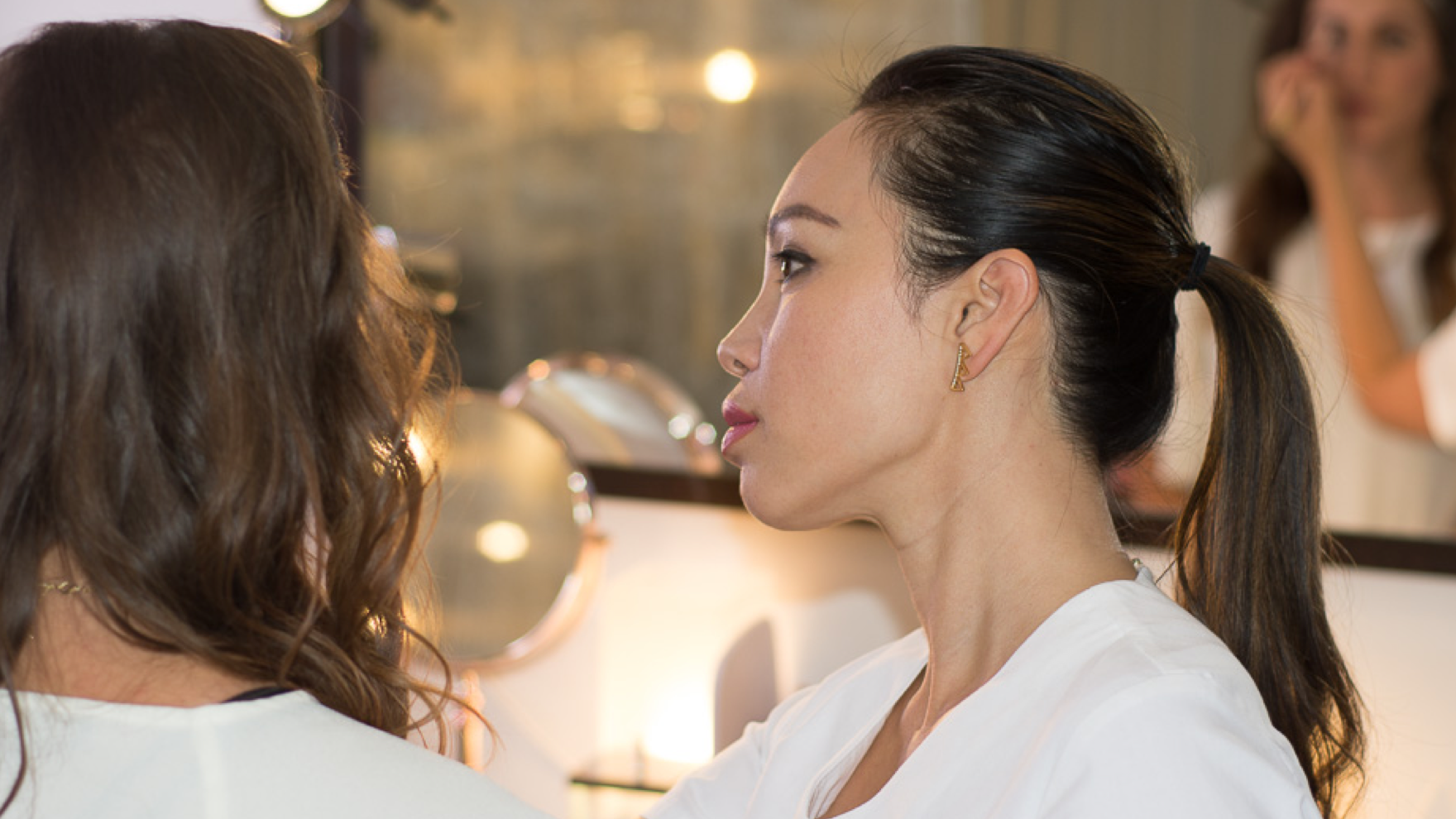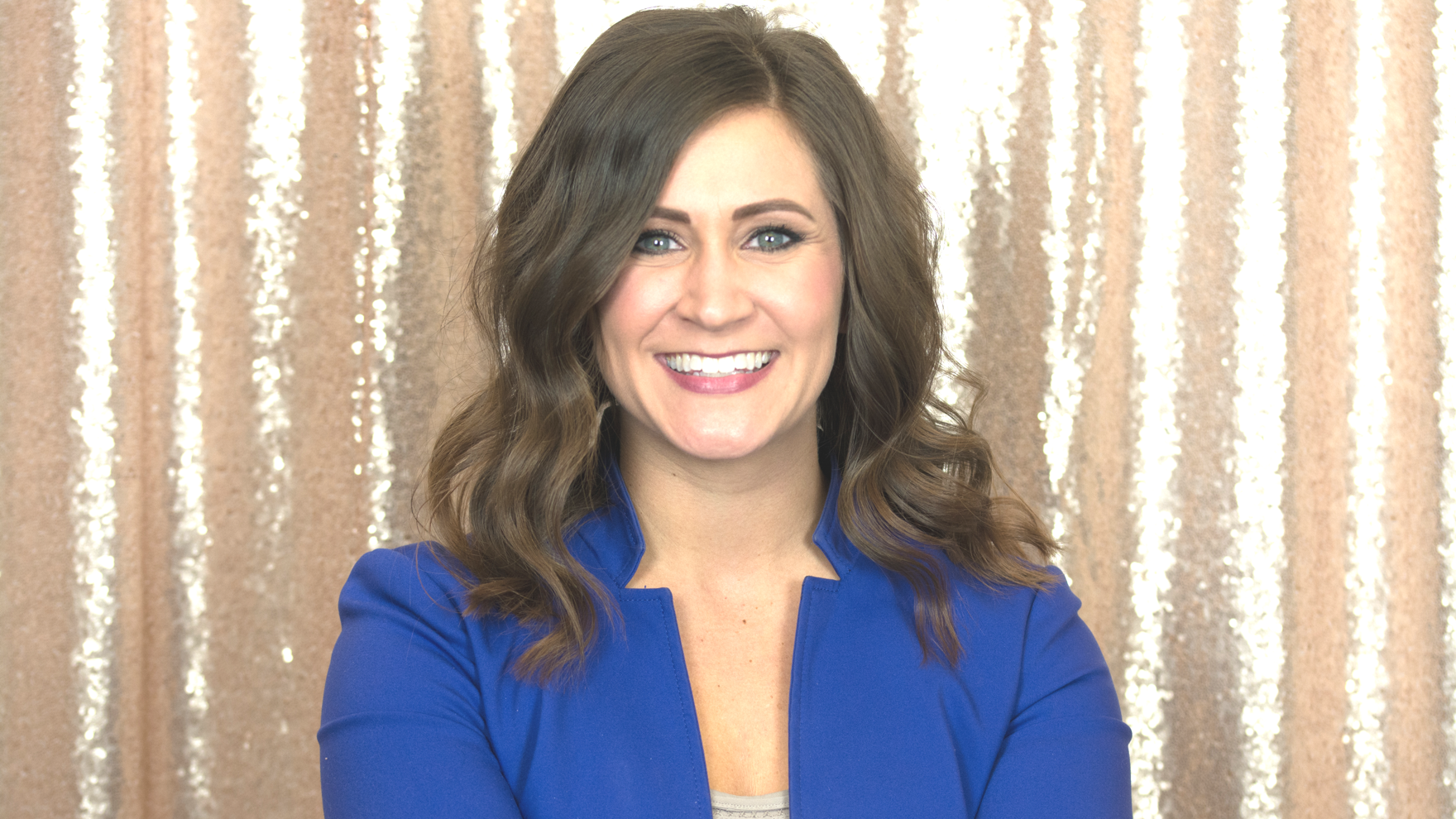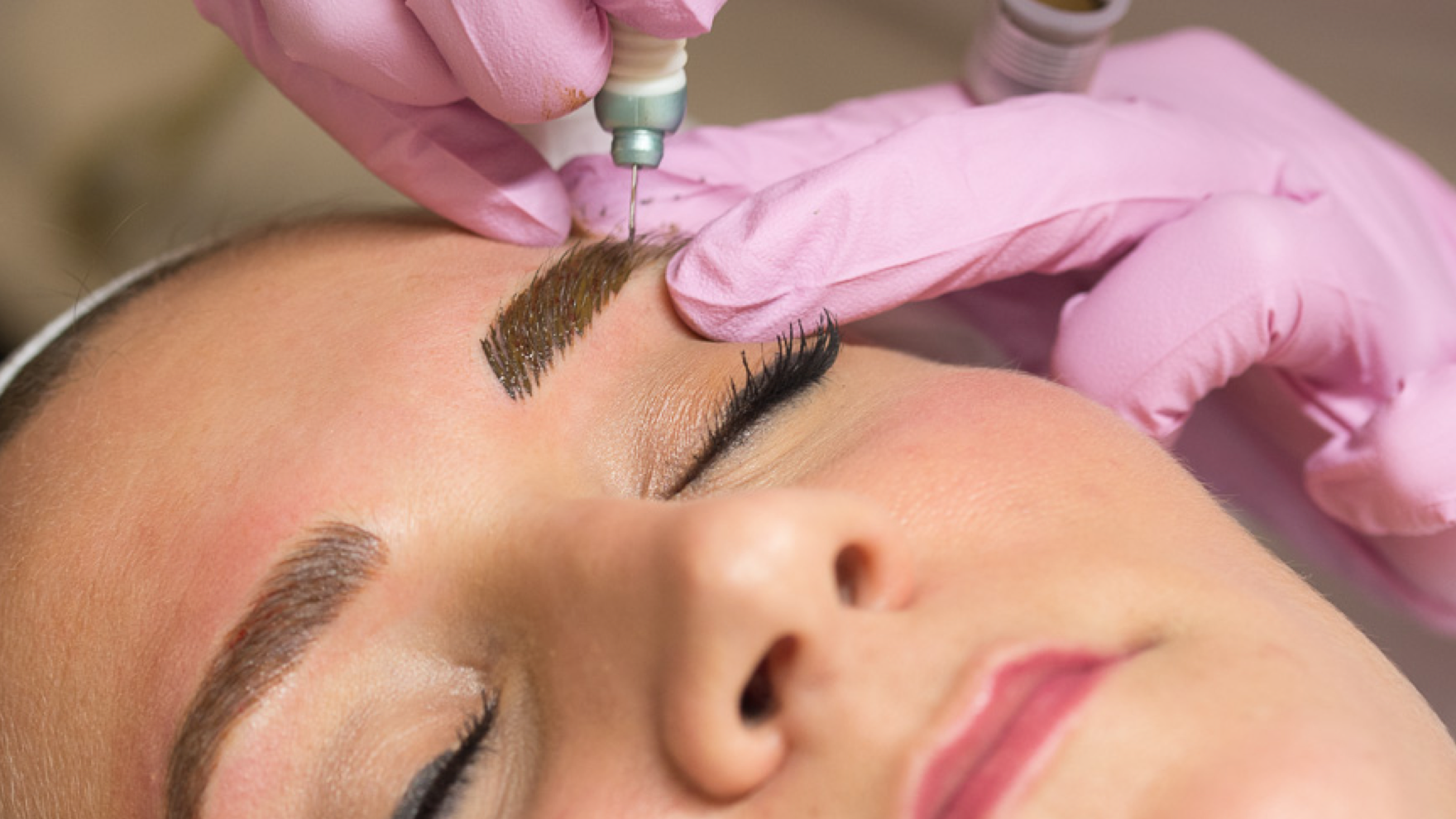
A Day In The Life of Tina Davies
It’s my first week as Content Manager with Tina Davies Professional, and I’m really psyched.
One of the the first things I was told was that I would get to sit in on some microblading procedures and see firsthand what a day in the life of Tina Davies looks like. This was HUGELY exciting for me. I’m a beauty junkie, and to see one of the most popular services in the world right now in action was super inspiring. Here’s how the day went:
Greeting and preparing the client
When a client comes in, Tina takes her time to get to know the client and preps them so they know what they’re expecting.
Different clients have different expectations. The big thing here is listening to the client and seeing what they actually want, as opposed to what the artist feels is best for them (although that can definitely be part of the overall procedure).
 Tina applies a numbing anesthetic that sits upon the skin for approximately 20 minutes. It helps to dull the pain that the client will experience, because all clients have different skin types and pain tolerances. Tina tells me how important this is. Lack of anesthetic will essentially compromise the entire service and leave the client with a poor experience.
Tina applies a numbing anesthetic that sits upon the skin for approximately 20 minutes. It helps to dull the pain that the client will experience, because all clients have different skin types and pain tolerances. Tina tells me how important this is. Lack of anesthetic will essentially compromise the entire service and leave the client with a poor experience.
Next, Tina has a consultation with them. After having given them an intake form, she gets an in-depth look of the client’s history, including anything that could be considered a contraindication to the service (eg: pregnancy, breast feeding, etc.) They might have a lot of questions, or have a specific vision in mind. The consultation takes a while because Tina wants to make absolutely certain that the client is getting what they want.
Tina removes the numbing cream with a cotton pad and has the client like a superstar in front of a giant lighted makeup mirror draws in the eyebrows to create a plan of what she will do with them. This was one of my favorite parts! First, she cleans one of her Pro Pencils with alcohol, then sharpens it to a fine tip before drawing in tiny little hairs, strand by strand, like she’s drawing in a whole new brow for the client. Tina and the client go back and forth a few times to make adjustments to the shape. After the client says that she’s happy with them, Tina gets her to lay back on the procedure bed.
The procedure
Now, this is where it got real.
Before she starts tattooing, Tina prepares another topical anesthetic to make sure that the client experiences as little pain as possible, keeping it on hand so that she can re-apply it throughout the procedure. Then, she mixes her pigments together (the final pigment color is usually a combination of 2 colors), and makes sure that the station is set up.
Next, Tina shows the tools she will be using to the client so that she can know that all of the tools used are clean, brand new, and disposable. Clients often like having a little bit of reassurance before the procedure so that she knows that she’s in good hands.

Tina takes her pigment and begins to trace it along the brow with either the 9 Classic, 14 Curved, or U needle, applying numbing cream as she goes to keep the area comfortable. She tells me that microblading basically creates an open wound, so she wants to make sure that the client is feeling OK during the tattooing procedure. Once the first brow is drawn, she applies the pigment as a masque to allow the it to absorb a little bit better into the open cuts. Then, she repeats the procedure with the other brow before wiping the masque off of the first brow and repeating the previous steps. She does this two or three times.
If Tina wants to do any shading (which she says she normally does), she’ll use the exact same color and dilute it a bit, just enough so that it creates a lighter wash of the color. She’ll use the 19 Shader needle to tap in the pigment using a different motion than microblading.
The whole microblading procedure takes about 20 to 30 minutes, but it took a bit longer with some clients. It all depended on the client’s skin, their tolerance to pain, and the amount that they flinch or move during the tattooing process.
The aftermath
Once Tina is done tattooing, she shows the client her new brows in a hand held mirror and gives them instructions for aftercare. She always advises them of what to expect: they will feel as though they are a little too dark within the first week and will encounter some light scabbing. All of the aftercare is explained in detail, so as to reassure the client with the results and what to expect.
When the client goes up to meet Sarah, a fellow employee at Tina Davies and our marvellous customer service expert, Sarah will reiterate some of the aftercare and what the client should expect in the healing process. If it’s their first time in, she’ll book a follow-up appointment with them for approximately 3 months from their appointment date. Oftentimes, she’ll also schedule another appointment for a touch up sometime in the future (a year or two years in advance). Most clients like to make sure they get their spot down the road.
Different clients, different needs
Like I said before, different clients will want different things. Tina listens to the clients intently, but also relies heavily on her instincts. She did a combination of these things for each of the clients that came in that day, and I saw that each client ended up having a different kind of solution to their need (literally!)
The first client, Heather, had her brows done by Tina a year and a half ago, so she was looking to have them freshened up. She went from being blonde to coloring her hair dark. The brows obviously needed to reflect this, so Tina darkened them up for her. She was very open to suggestions and super excited to see the results.

The second client, Chanel, knew exactly what she wanted. She had her brows and eyeliner (upper and lower) done two years ago, and was looking for something with a bit more of an impact. Tina suggested a darker brown for the brows and thicker liner with more of a winged tip to make her eyes “pop”. The results were stunning on Asian skin! (Side note: it was SO COOL to see Tina do eyeliner with the machine. It was a totally different process and really interesting to watch).

The third client, Samantha, had her brows done three months ago and was in for her follow-up. At first, she thought that she wanted to add more arch to her brows, so Tina drew them higher. The client looked in the mirror and decided that higher was NOT better and Tina agreed. She just needed some extra reassurance and was completely satisfied with her brows - no touch-ups needed!
The fourth client, Rita, had a mature skin type. She had her eyebrows done three and half years prior with Tina and was in need of a touch-up. This time, Tina went with a warm taupe to compliment her skin tone while keeping the thinner shape in the brow, something that Rita requested. Rita just wanted to feel more refreshed, which is exactly what Tina did.

The fifth client, Courtney, drove in two hours for a brow adjustment. Essentially, she just wanted two dots of color added. Tina was happy to oblige and Courtney was thrilled with the results.
The last client, Lynda, had her brows microbladed three months prior with Tina and was in for the follow-up. Like Chanel, Lynda is Asian, her skin being the perfect candidate for microblading. Everything healed really well, so Tina added a stroke to the arch and 1 mm in length on the left brow. Again, Lynda really loved the results.
What I Personally Noticed
As an observer, there’s a lot of things that you see in clients that you may not always notice as an artist. I got to speak to the clients about the procedure while they were happening and asked how it felt, what they liked in the procedure, and what their overall expectations were. Here’s what I found out:
Clients will experience pain differently
Heather said that the pain was nothing, Chanel said that it was very uncomfortable. There were a lot of comparisons to body tattoos, for obvious reason. Heather said that getting microbladed was much easier than getting a body tattoo, and way less painful. On the other hand, Chanel said that it was worse than a body tattoo because of the nature of the procedure; it’s basically getting a tattoo right on your face! The amount of pain experienced totally depends on the client and will definitely vary.
Different skins require different pressure
The pressure that Tina used on the client depended on the client’s skin (the sensitivity, the thickness, the client’s tolerance of pain, etc.). Remember the food skin comparisons in THIS blog? This is the perfect guide to helping determine how much pressure you should use on your client. Tina told me that the skin of each client she worked on that day required different pressure.
Some clients bleed- A LOT

It can get pretty gory at some points, especially during the shading. I saw one client bleed throughout the entire procedure, and initially, it can be a little shocking. I have a bunch of body tattoos, so I wasn’t deterred, but for an artist (or client) who aren’t as familiar with the procedure, this can be a little freaky. Just be aware and you’ll be good to go. It’s also best not to mention this to the client so that they don’t become paranoid during the procedure.
Tina likes to do shading in most cases, but not always
I’d say 98% of the time Tina likes to do shading on the client after she does microblading. However, the client may request something more natural and soft (Rita was in that category), and in those cases, there may be no shading at all. It’s rare though, as the shading creates more depth and definition to the brows, requiring little-to-no touch up in the future.
You can use Vaseline during the procedure to create a little bit of glide
True story - Vaseline can do anything. If Tina is looking for a little bit of glide to help to soften the skin and reduce the discomfort of wiping, she adds a little bit of Vaseline to the eyelids or brows.
Tina changes up the needle, depending on how she’s feeling
For example, she may decide to use the U Needle for those free-flowing brow strokes as opposed to the 9 Classic, which is better for a more precise, thinner brow. It not only depends on the effect but also what she thinks is the best tool for her art in that moment.
Caucasian skin can be difficult to work with, but not impossible
As you may have guessed, a fair-skinned, red-haired client will be more difficult to microblade than someone like Chanel or Lynda because typically, their skin is more delicate and will require a lot less pressure. Both Chanel and Lynda are Asian, and Tina let me know that both of these clients’ skin were perfect for microblading. Always check with an artist before you have the procedure performed on yourself to make sure that your skin is a good match for microblading.
Sun exposure and exfoliation can REALLY compromise the results
One client was expecting to be in a hot, sunny climate within a week of their follow-up and Tina advised strongly against it. Sun exposure is a HUGE contraindication to microblading and best to avoid during the healing process as it causes stress and possible sunburn to the skin.
Checking in with the client during the procedure is crucial
Obviously, I knew how important it was to check in with the client before the procedure, but Tina checked in with her clients constantly. She would ask questions like, “how’s the pain on a scale from one to ten?” This way, the client could feel free to alert Tina to any discomfort they were feeling during the procedure.
It’s all about the experience
It’s not just about tattooing - it’s about the experience as a whole. Client care is the customer service aspect of microblading that artists don’t always talk about, but it’s entirely crucial to the procedure itself. Women are entrusting you to tattoo their face so that extra TLC can go a long way to build that relationship and bond.
I’m not just saying this, but I found watching all of this to be fascinating. I’d never seen any tattooing done without a tattoo gun; the work was beautiful!
Not only was the procedure incredible to watch, but it was also wonderful to hear the stories of the clients. One client was relieved that she wouldn’t have to worry about putting on makeup before every busy work day. Another client described the convenience of having her brows stay put all day, every day. Tina told me that some other clients, who barely have any brows, to begin with, said that microblading was so liberating. It’s clear that something that is taken for granted by some is life-changing for others.
I can’t wait to get this done myself! Stay tuned for our live Q & A later this February where I will be getting my own brows microbladed and you, our artists, will be able to ask Tina any questions you may have while the procedure is taking place.
See you guys soon. I’m excited for what’s to come!
XO
Lauren




1 comment
This was such a great in depth article in the day in the life of a microblading artist. I loved the Vaseline tip and would to see that in a video to know how that works. And using it doesn’t compromise the color?
Priya
Leave a comment
This site is protected by hCaptcha and the hCaptcha Privacy Policy and Terms of Service apply.